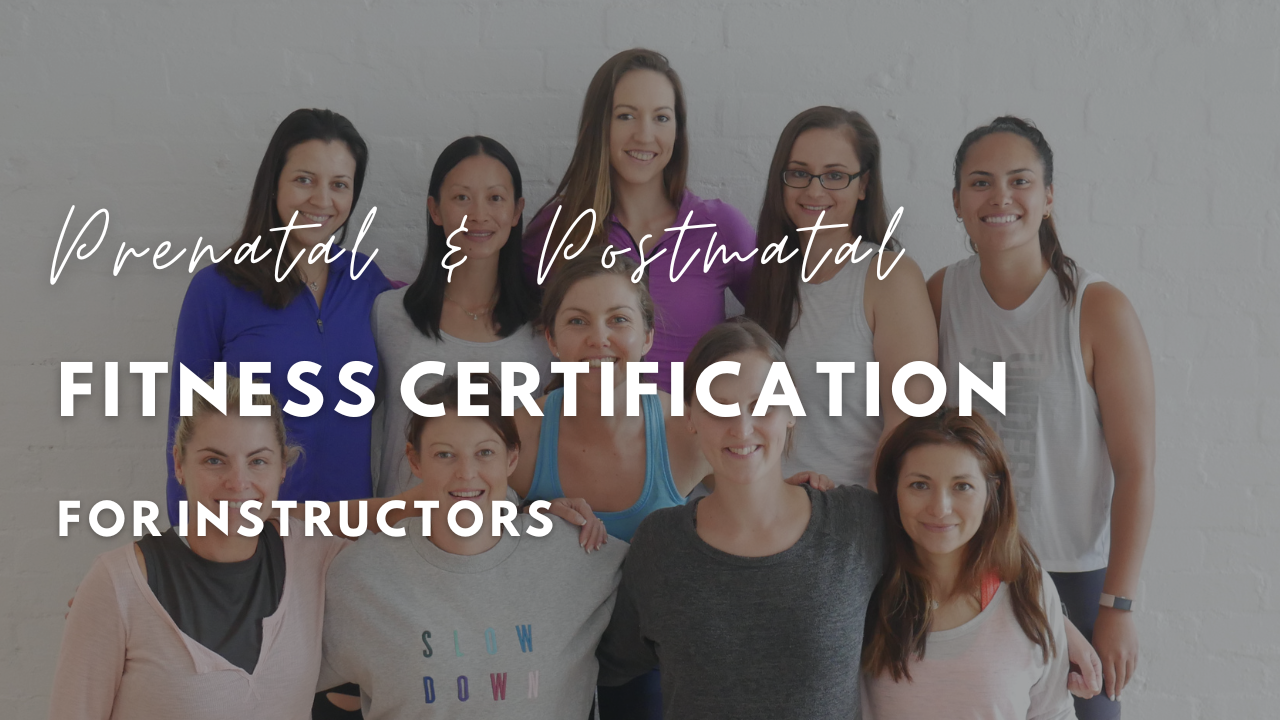3 Ways Personal Trainers Can a Prenatal Fitness Qualification

3 Ways to Use Your Prenatal Fitness Qualifications
This post and video is for those personal trainers and educators who wish to learn how our prenatal fitness certification can help them find a new career. If you are ready to get that rewarding career you deserve then I know you will love my prenatal fitness instructor course.
First, Download my FREE Course Info Booklet to see how >
3 Ways to Use Your Prenatal Fitness Qualifications
Are you a personal trainer looking to expand your expertise in prenatal fitness?
In my online course, we provide essential tips and insights for achieving your Prenatal Fitness Qualification in 2024. Discover the latest trends, best practices, and certification requirements that will help you support expecting mothers safely and effectively.
We discuss specialized training techniques, nutritional guidance, and the importance of understanding the physiological changes during pregnancy.
Whether you’re just starting out or looking to enhance your current qualifications, this course is packed with valuable information to elevate your skills and grow your client base.
Join us as we explore how to create tailored fitness programs that cater to the unique needs of pregnant women.Click on the image below to learn more about this course.
Are you ready to get your certificate and start training pregnant mamas?
Become a Qualified Trainer
As a personal trainer, it's essential to recognize the importance of prenatal fitness qualifications in today's fitness landscape. With more women seeking to stay active during pregnancy, trainers need to be equipped with the knowledge and skills to provide safe and effective workouts.
This specialization can be a game-changer for your clients and your business, setting you apart from others in the industry.
You Will Face Unique Challenges
When working with pregnant clients, trainers often face unique challenges that require specialized knowledge and attention. Safety concerns are paramount, as certain exercises can put excessive strain on the body, particularly the joints and pelvic floor.
Trainers need to understand the physiological changes that occur during pregnancy, such as the relaxation of ligaments and increased blood volume, to design workouts that accommodate these changes.
Additionally, pregnant women may have specific fitness needs, like maintaining flexibility and strengthening the core, that trainers must address. Failing to do so can lead to ineffective workouts, injuries, or even complications during pregnancy.
Medical Clearance
Another challenge trainers face is navigating the complexities of medical clearance and communication with healthcare providers. Pregnant women need to obtain medical clearance before starting or continuing any exercise program, and trainers must know how to facilitate this process.
They must also be able to communicate effectively with healthcare providers, understanding the client's medical history and any exercise restrictions. This requires strong interpersonal skills, attention to detail, and a deep understanding of the medical aspects of pregnancy.
Modify Your Exercises
To further complicate matters, every pregnancy is unique, and trainers must be able to adapt their approach to meet the individual needs of each client.
This might involve modifying exercises to accommodate physical limitations or finding creative ways to alleviate discomfort or pain. Trainers must be able to think on their feet, making adjustments as needed to ensure a safe and effective workout.
When it comes to prenatal fitness, there are several key areas that personal trainers should focus on to provide exceptional service to their clients.
One crucial aspect is anatomy – understanding the changes that occur in the body during pregnancy, such as the shift in posture and the relaxation of the pelvic floor. Trainers should also be well-versed in exercise modifications, knowing how to adapt exercises to accommodate the physical limitations and discomforts associated with pregnancy.
Communicate
Effective communication with healthcare providers is also essential, ensuring that trainers are aware of any medical restrictions or concerns. Finally, trainers must prioritize the emotional and psychological well-being of their pregnant clients, providing a safe and supportive environment that fosters trust and confidence.
Join PregActive Today!
To become proficient in these areas, trainers should invest in continuing education and specialized training. This might involve attending workshops or conferences, pursuing certifications, or seeking guidance from experienced trainers who specialize in prenatal fitness.
By doing so, trainers can gain the knowledge and skills needed to provide exceptional service to their pregnant clients.
Understand Your Clients
I have dedicated an entire section in my prenatal fitness instructor course to understanding your client's needs. Perhaps the most critical tip for trainers working with pregnant women is to prioritize empathy and understanding.
Pregnancy can be a vulnerable and emotional time, and trainers must create a safe space that acknowledges and honors these feelings. By doing so, trainers can build trust with their clients, fostering a deeper connection that leads to more effective workouts and better outcomes.
Self Care during Pregnancy
This empathetic approach also involves recognizing the importance of self-care during pregnancy. Trainers should encourage their clients to listen to their bodies, honoring their physical and emotional needs.
By doing so, trainers can help their clients develop a more intuitive understanding of their body, leading to a more empowered and confident pregnancy experience.
Holistic Approach
Ultimately, the key to success in prenatal fitness lies in adopting a holistic approach that acknowledges the complex interplay between physical, emotional, and psychological factors. By prioritizing empathy, understanding, and self-care, trainers can create a supportive environment that honors the unique needs of their pregnant clients.






